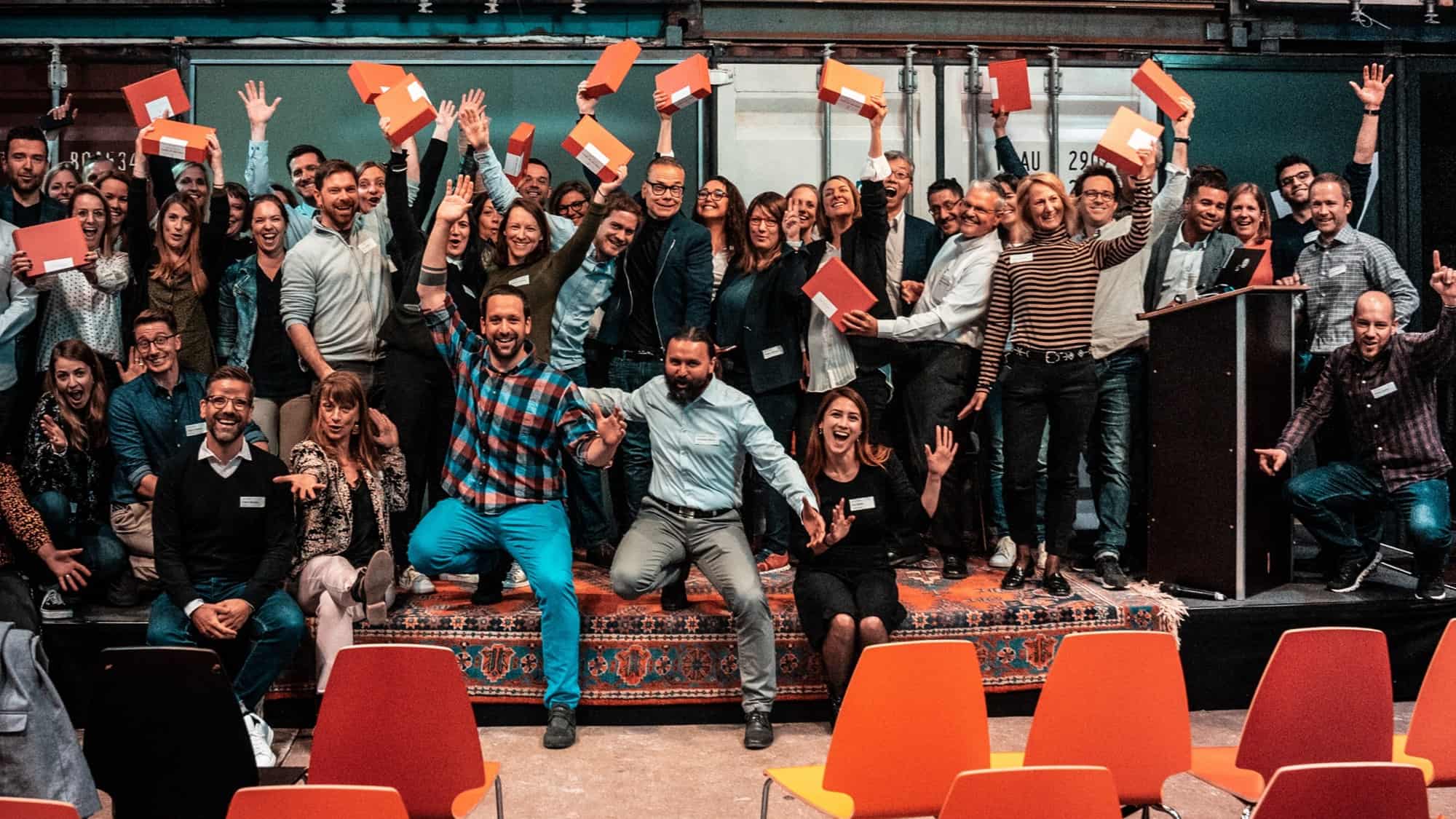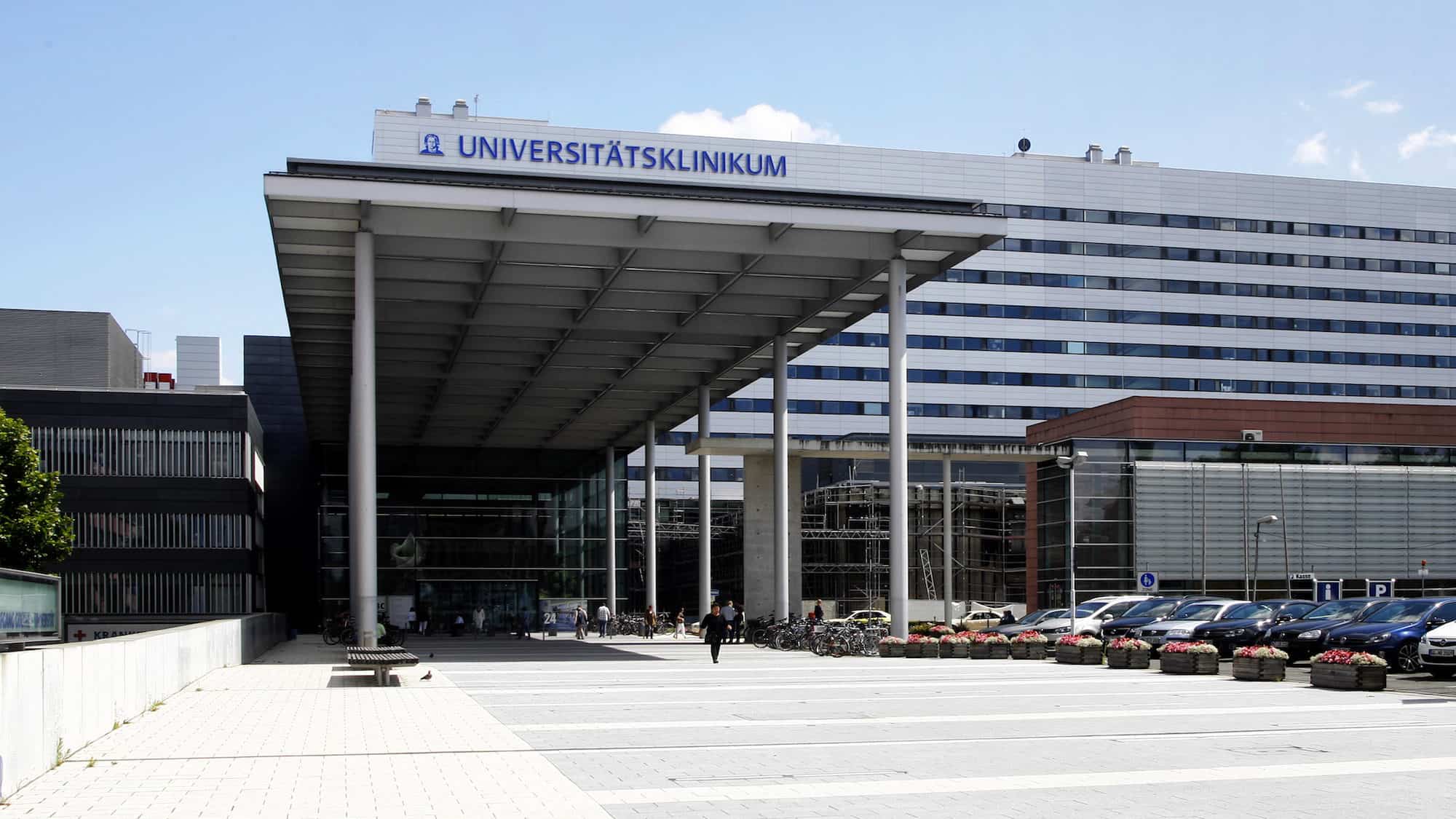Temporary staffing firms have grown big by providing a quick fix to absences in a workforce. Andjaro helps large companies tap their internal resources instead and save a lot of money. In this interview, Andjaro’s CEO Quentin Guilluy explains how this works.

Co-founder and CEO, Andjaro
Quentin Guilluy is CEO of Andjaro which he co-founded in 2015 in Paris. Andjaro is a cross-channel staffing platform that allows the mapping, reallocation, and load balancing of the internal workforce for large organizations. The company employs more than 50 people and has raised EUR 19 million from top-tier venture capital funds such as Balderton Capital and IDinvest so far. Its customers are mainly large enterprise clients such as Starbucks, ENGIE, Sodexo, and Elior (two catering giants). Quentin has a Master in Human Resources Management and Personnel Administration from Paris Dauphine University and more than 5 years of experience working in HR.
How has the coronavirus affected Andjaro and your enterprise clients?
It has strengthened our relationship with our clients and opened the door to new countries as well. I just did a podcast together with the CFO of Sodexo, a food service company with almost half a million employees. He said that in his view, Andjaro isn’t a simple software anymore, it is a long-term solution to the very pertinent problem of internal organization. It is almost as if the coronavirus crisis acted like a microscope that made it very apparent what impact we have on large organizations. Of course, some of our clients were very much affected by it, which translated in less usage during the months of March, April, and May, but business has normalized with the end of the lockdown. Also, our clients have communicated a lot about our solution with the result that our sales funnel is filled to the brim. We have signed our first new logos one month after lockdown and I think it is safe to say that we are seen as an answer to the crisis.
You once said that Andjaro’s competitors are not staffing agencies like Adecco, but the phone. How did you mean that?
Imagine being the manager of a construction site or a restaurant. Someone calls in sick in the morning. You have two choices now, and both involve using your phone. The first way is to call people you know, including fellow managers from other sites. Often you don’t find someone right away, and even in the best case, if you eventually find someone, you spend a lot of time on the phone calling different people. This is not a single occasion, but a problem you’ll have over and over again, costing you valuable time almost every day. The alternative is to call an employment agency. They will be able to provide you with a solution very quickly, but the employee will cost you 50% to 100% more this way. Now if you know that the absenteeism rate in large organizations is around 5%, you’re effectively paying for 21 people to fill 20 positions. And if you have a workforce of tens or hundreds of thousands of workers, the cost of relying on temp agencies is massive.
“If you have a workforce of tens or hundreds of thousands of workers, the cost of relying on temp agencies is massive.”
How can Andjaro help with this problem?
We give every manager in a company a complete view of who in his organization would like to work more and when, and what qualification these people have. And our experience shows that this knowledge permits us to fill the big majority of shifts with internal people instead of relying on employment agencies. The reason why people work with this agency is that they lack this clear view of their own resources, and we provide them this information.
But you don’t replace temp agencies completely, right?
No, but they are booked through the Andjaro software as well, but only after all internal possibilities have been exhausted. This means, of course, that these agencies lose their direct access to our client because it is our software that manages this relation.
Andjaro has clients that spend high six-figure numbers for your software every year. For the Software-as-a-Service space, that is way above average. How can they justify these amounts?
Because we can show them the return on investment. Not many software companies in the HR space can do that. The amount of savings for our clients is in the millions. This is only possible because the inefficiencies are so large, and the reason is disorganization. We’re making sure every shift is filled, but we also make sure that even in emergencies, rational and cost-effective decisions are taken.
Isn’t disorganization a bit of a harsh word? Companies don’t grow into large enterprises if they aren’t well organized.
Take the example of my mother who was working as a childcare professional with a fixed term contract. She would receive a call in the morning at 5am by a manager who would let her know at which facility she had to work. This is what I call disorganization, the inability to have a clear picture of internal supply and demand for work, and as a result, the inability to match them efficiently.
You’ve raised more than EUR 13 million in the last financing round and will use the funds to expand internationally. How do you go about this?
We have a lot of customers based in France that were able to shift their workforce during the Covid-lockdown period. They are now urging their subsidiaries to adopt our software to make sure they’re ready if a second wave comes. Already having such first clients in a country helps our sales efforts. We’re already active in the UK and Benelux, and now target the DACH region, Italy and Spain. Ultimately, our goal is to become a global leader. I know that this would not be possible by hiring only French talent, so we’re paying special attention to hiring people with an international background. In our team of 50 people, 10 nationalities are already represented.
What kind of companies do you target?
Our focus is on companies that have more than 250 employees. So any large blue-collar organization that is aware of the fact that they don’t manage the problem of absenteeism effectively would be a good lead. If they look at their income statement and realize that they’re spending too much on external manpower, they’re likely to have a very good use case for Andjaro.
Let’s discuss the societal aspect of what Andjaro does as the last point. About a third of part-time employees would like to work more, and an increasing number of workers, especially young people, can only get fixed-term contracts instead of full-time jobs. And there has been a boom in on-demand work, termed the Uberization of work. What do you think about these tendencies?
For me, this is a massive concern. The people who say that an uberization of work is good for society are not the ones who have to feed a family with a precarious salary. Unlike you and me, which have rewarding careers that allow us to earn decent money while doing what we’re good at, many people have to just take up a job out of necessity. The frictions that we see are the result of the desire of people to have permanent and stable employment, and the companies need to stay flexible. Our company can help both sides by putting the right people in the place where they are needed. Luckily there is a shift in the mindset of large companies, they want to do the right thing, being socially responsible and help avoid their employees falling on hard times because they don’t have enough work. And if there is one thing that is positive about the corona crisis, it is that it has changed the perception of blue-collar workers who are now called essential workers. This is a wonderful thing, and it is also reflected in the focus of HR Tech firms, which historically were always about managing white-collar talent. There has been a lot more attention from tech companies regarding blue-collar workers in the past few years.
Written by
WITH US, YOU CANCO-INVEST IN DEEP TECH STARTUPS

Verve's investor network
With annual investments of EUR 60-70 mio, we belong to the top 10% most active startup investors in Europe. We therefore get you into competitive financing rounds alongside other world-class venture capital funds.
We empower you to build your individual portfolio.
More News
11.05.2021
Meet the global leader in insects
As a child, Antoine Hubert counted butterflies, now he grows worms. Having raised USD 425 million so far for an asset-heavy industrial startup makes him stand out among European entrepreneurs.
09.04.2021
“Our goal is to become the category leader in innovation”
In this interview, David Hengartner, CEO of GetKickbox, explains how his early experience as a founder served him in the corporate environment, what exactly an intrapreneur is, and why hippos are dangerous to innovation.
17.06.2019
“There is no good similar treatment”
Prof. Jonel Trebicka is an expert for liver diseases. He is supervising clinical trials of Versantis' new drug to treat an acute form of cirrhosis, which is very difficult to treat.
Startups,Innovation andVenture Capital
Sign up to receive our regular newsletter and learn about investing in technologies that are changing the world.




